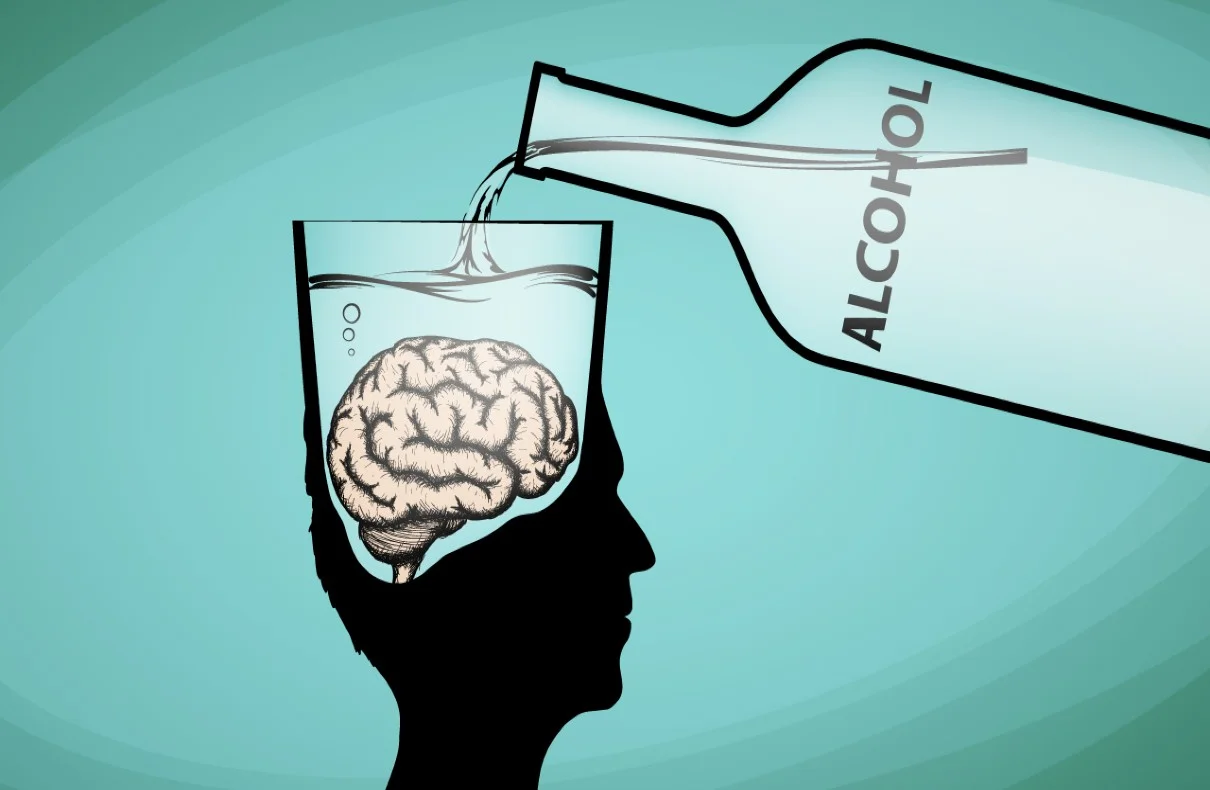
Alcohol consumption has long been known to have a profound impact on the brain. It interferes with the brain’s communication pathways, affecting the way it looks and functions. Recent advancements in the field of molecular genetics have shed light on the neurobiological and genetic basis of addiction, highlighting how addictive substances like alcohol can overwhelm the brain’s natural reward pathways.
To understand how alcohol affects the genetic composition of the brain, it is important to first grasp the role that genes play in brain function. Each brain cell contains long strands of DNA, which store the individual’s genetic code. DNA is tightly packed around proteins called histones, forming a complex structure that regulates gene expression. When genes are active, they code for proteins that perform various functions within the cell and influence behavior.
The regulation of genes is a dynamic process, adapting to the brain’s daily needs. Recent research has shown that alcohol and drugs of abuse can directly influence changes in gene expression in areas of the brain responsible for memory and reward responses. These substances can alter the binding of proteins to DNA, modify the process of DNA translation into proteins, and impact cellular energy utilization. For example, alcohol can induce changes in dopamine receptors and transcription factors involved in reward signaling and neuronal function.
Alcohol-Related Deaths: A Growing Crisis in the United States
Alcohol consumption can have a profound impact on gene expression in the brain. Studies conducted on animal models have revealed that alcohol and drugs of abuse can cause alternative forms of genes to be expressed in specific brain circuits. These altered gene expressions can result in changes to dopamine receptors, transcription factors, and other molecules involved in reward processing and memory formation.
One intriguing finding is the effect of alcohol on the DNA packaging process. When alcohol is broken down in the liver, a byproduct called acetate is produced. Acetate can cross the blood-brain barrier and unwind DNA from histones in memory circuits. This unwinding of DNA can lead to changes in gene expression, ultimately affecting neuronal function and behavior.
Furthermore, addictive substances like alcohol, nicotine, cocaine, and opioids activate important signaling pathways that regulate metabolism. By affecting these pathways, these substances can influence neuronal function and gene expression. The intricate relationship between alcohol and gene expression suggests that changes to the genetic composition of the brain are not necessarily permanent and can be influenced by various factors, including medications and lifestyle choices.
Medications commonly prescribed for mental health disorders can also affect gene expression in the brain. Antidepressants and mood stabilizers, for instance, have been found to modify DNA packaging and alter the expression of genes involved in brain plasticity. These medications can potentially reverse or mitigate the changes induced by alcohol and substance use disorder.
In addition to medications, lifestyle choices can also impact gene expression in the brain. Although it is not yet clear whether lifestyle choices can reverse the changes induced by addictive substances, research has shown that dietary changes, intensive meditation, and exercise can have a profound effect on gene regulation.
Dietary changes, such as a high sugar diet, have been found to reprogram the ability to taste sweetness by altering gene expression networks involved in development. Intensive meditation, even after just one day, has been shown to affect gene regulation in the brain, specifically reducing the expression of genes associated with inflammation. Exercise, on the other hand, alters gene expression by modifying histones and molecular tags attached to DNA, ultimately enhancing neuronal activity and plasticity.
Stress Leading Teens to Drugs and Alcohol, Study Says
The emerging understanding of alcohol’s impact on the genetic composition of the brain has significant implications for addiction treatment and prevention. By targeting important signaling pathways linked to addiction, researchers may develop therapies that alter brain circuit function and mitigate the effects of alcohol and drug abuse.
The complexity of gene expression and its response to medications and lifestyle choices presents a promising avenue for personalized treatment approaches. Understanding the specific genetic mechanisms underlying addiction can help researchers develop targeted interventions that address individual vulnerabilities and promote long-lasting recovery.
